In an increasingly developed world, community gardens encourage skills and values that are sometimes lost in urban areas: tending to the land, promoting sustainability, maintaining a shared space, working toward a common goal. They take different shapes: Some gardens rent out plots of land to locals eager to grow their own produce. Others are established as nonprofits dedicated to growing food for those in need. No matter their intention, community gardens help reclaim urban areas and reshape the relationship residents have with their homes and communities. As the trend grows in the United States, fledgling gardens should look to these five community spaces for inspiration. From Alaska to Texas, this is community gardening at its finest.
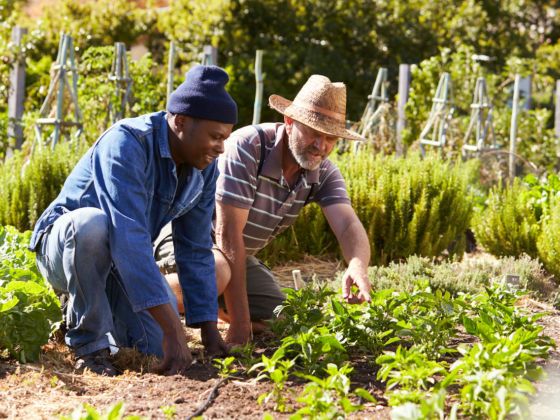

5 Community Gardens That Are Setting an Example in the United States
1. Shiloh Field Community Garden — Denton, Texas
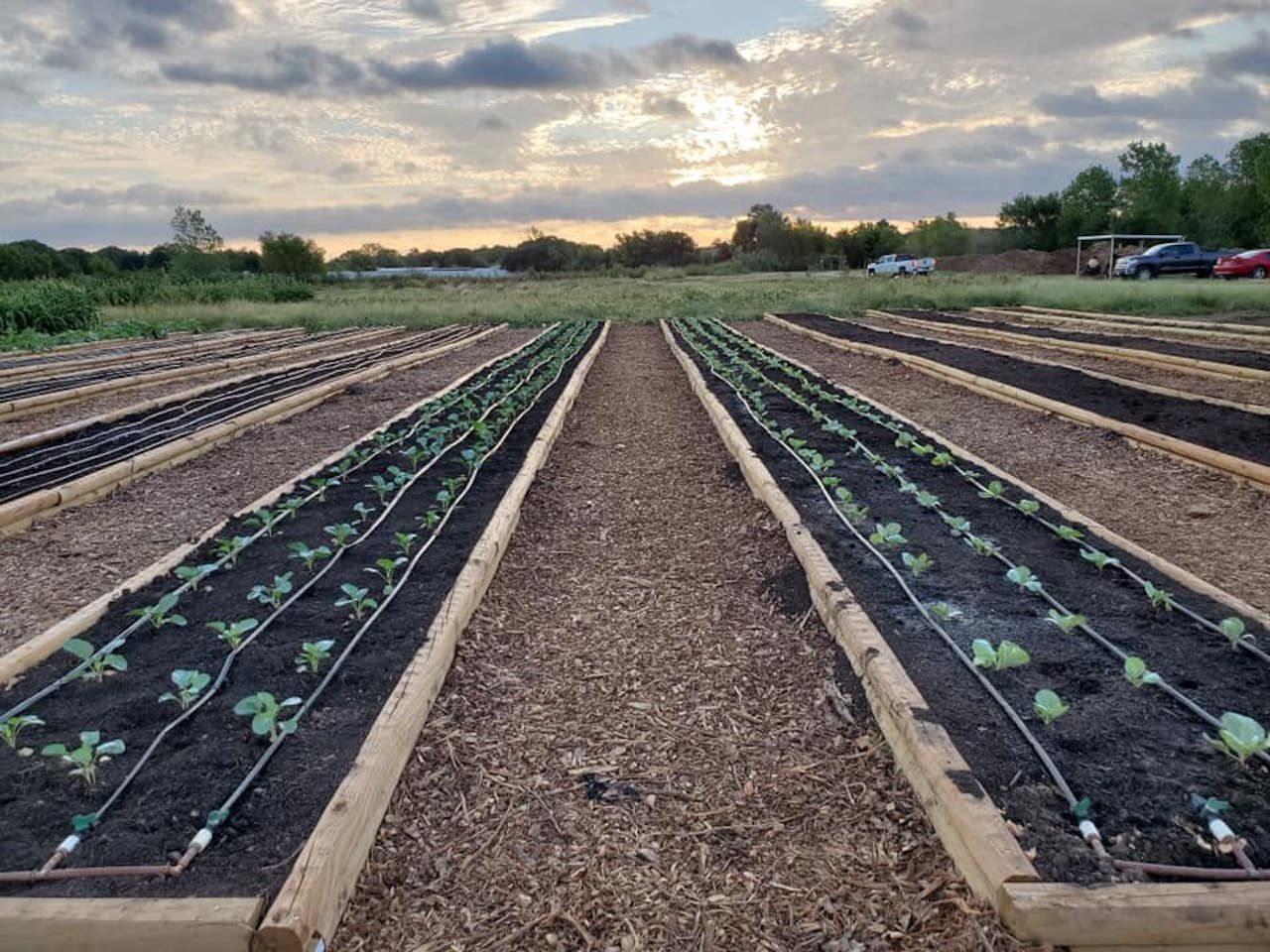
Photo: Friends of Shiloh Garden-Shiloh Field/Facebook
Among the most prolific community gardens in the country, Shiloh Field is dedicated to feeding the hungry, offering those in need everything from fresh fruit to freshly laid eggs. The garden was established in 2009 and today delivers to numerous organizations, including the Salvation Army, Denton County Food Bank, and Fred Moore Day Care Center. Volunteers of all ages put in over 500 collective hours each month, learning lifelong skills around growing techniques and sustainability measures while doing good for their community.
Locals may also adopt individual plots for themselves and their families at no cost. The land, water, and training are all included. Anyone is welcome to take a tour of the massive 14.5-acre garden, a popular outing among school groups, as well as volunteer to help maintain it. Shiloh Field operates every day except Wednesday and Sunday from 8:00 AM. To participate in the harvest, swing by on a Monday, Thursday, or Saturday morning.
2. Fenway Victory Gardens — Boston, Massachusetts
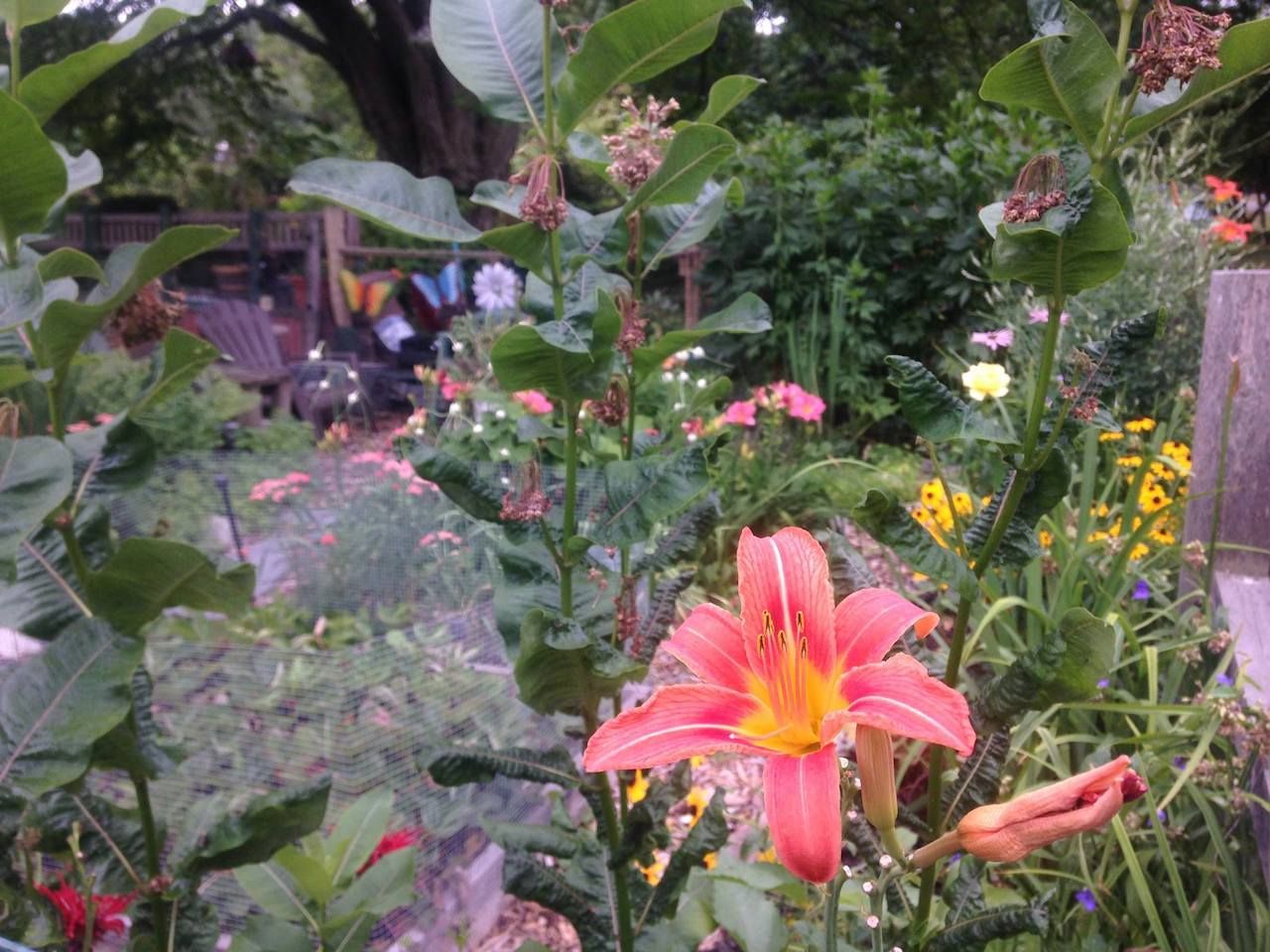
Photo: Fenway Victory Gardens/Facebook
Boston’s Fenway Victory Gardens are the oldest surviving World War II victory gardens in the country. Victory gardens were created during wartime as Americans faced food shortages, providing space where families could grow their own produce. A three-minute walk from Fenway Park, the Fenway Victory Garden was established in 1942 and has been continuously operating ever since, thanks to the Fenway Garden Society founded in 1944.
Along with being Boston residents, today’s gardeners are also required to have volunteered for the society before they’re able to claim a plot. There are more than 500 plots in the Fenway Victory Gardens spread across 7.5 acres of Boston’s Emerald Necklace, the city’s famous park network designed by the father of American landscape architecture, Frederick Law Olmsted. Currently, over 375 Bostonians jointly maintain its upkeep. Those interested in testing out their own green thumbs can add their name to the waiting list. Plots are first come, first served.
3. Fairbanks Community Garden — Fairbanks, Alaska
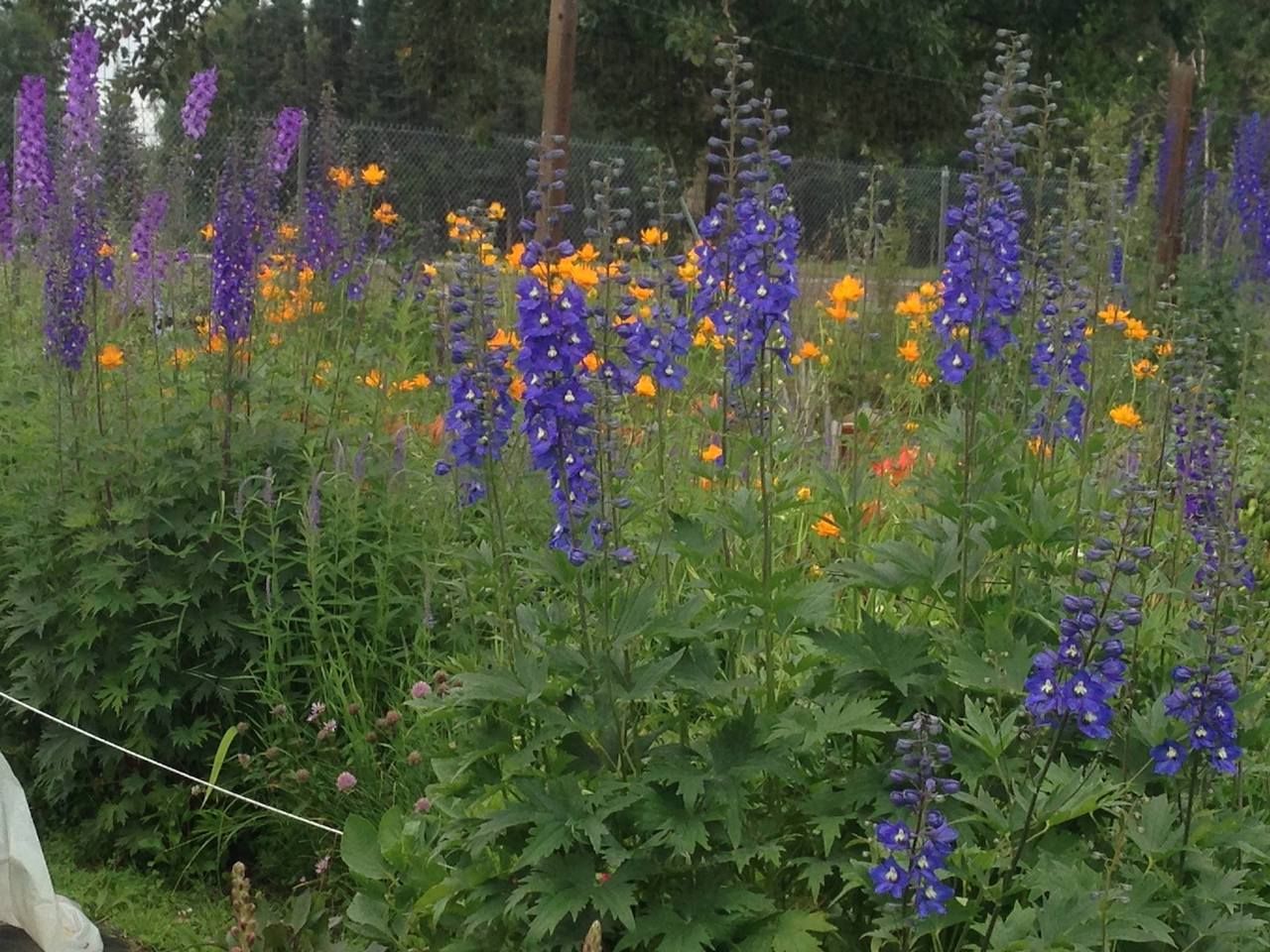
Photo: Fairbanks Community Garden/Facebook
The Arctic does not go easy on gardeners. Located near downtown Fairbanks, Alaska, this community garden is not only a place for locals to rent plots should their homes sit on permafrost, lack access to running water, or simply have no space for a personal garden. It’s also a venue for sharing tips and tricks and forging friendships. Four years after opening in 1979, the Fairbanks Community Garden moved to the 2.5-acre plot on which it now sits. Today, the garden is run by a nonprofit organization, created in 2017. Locals of all backgrounds are invited to rent plots, which are currently tended by community members from families to seniors to church groups, of which the latter donates much of its yield to feeding the hungry.
4. Alemany Farm — San Francisco, California
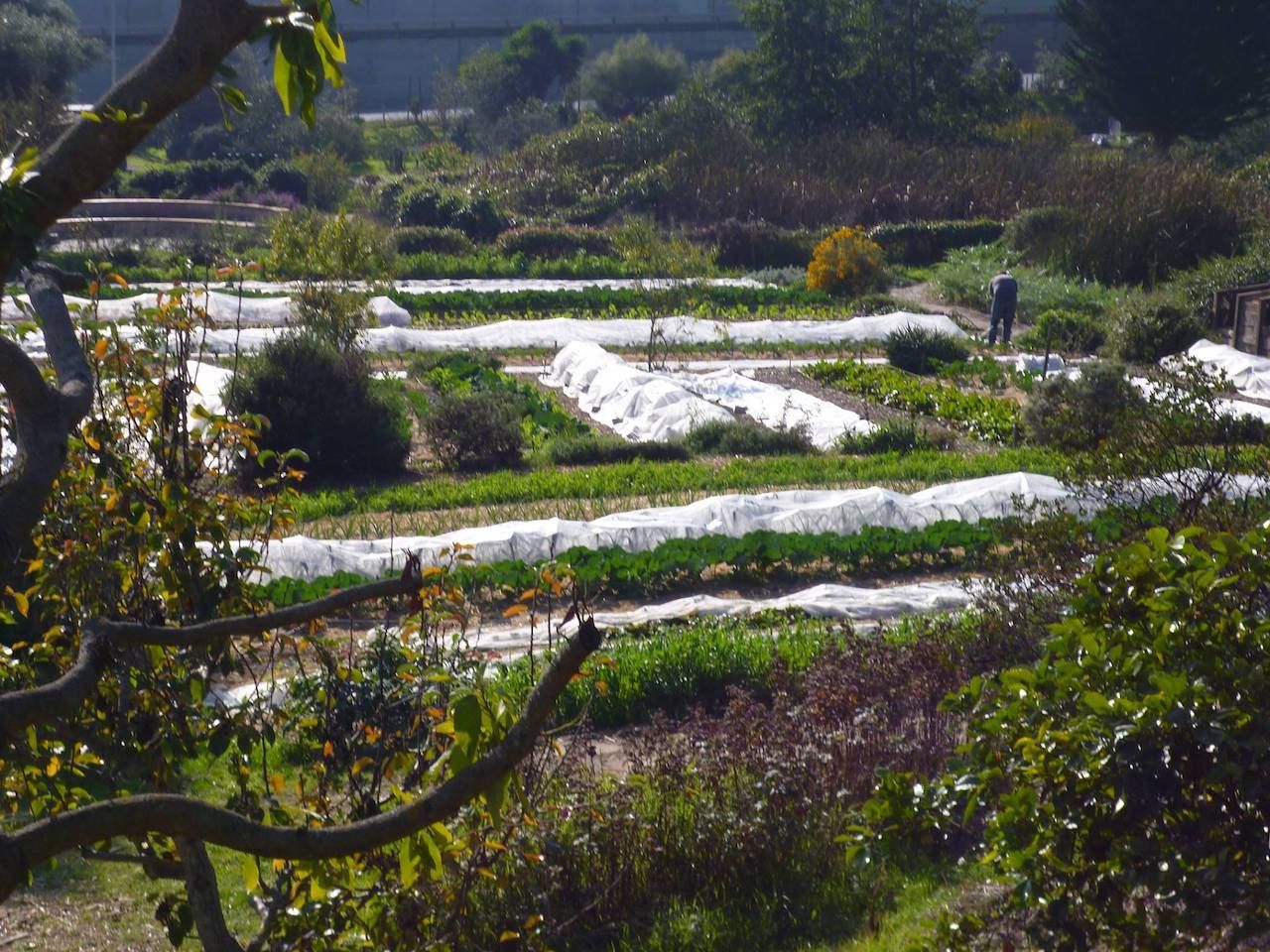
Photo: Alemany Farm/Facebook
At 3.5 acres, Alemany Farm is San Francisco’s largest urban farm. It’s located in the Bernal Heights neighborhood where the city’s epic Crosstown Trail traverses, welcoming both passersby interested in helping out for a day and regular Friends of Alemany Farm volunteers committed to the farm’s upkeep year-round. Open to all, community workdays are held on the first and third Sunday of every month, the alternating Saturdays, and Monday afternoons.
Alemany Farm benefits the community in several ways, from providing ecological education to promoting food security. Volunteers are invited to take fresh produce home with them after a long day in the garden, and leftover food is donated to locals and organizations like the Free Farm Stand. Check out the website to learn more about workshops, internships, and team-building opportunities for corporate groups.
5. Virginia Avenue Community Garden — Washington, DC
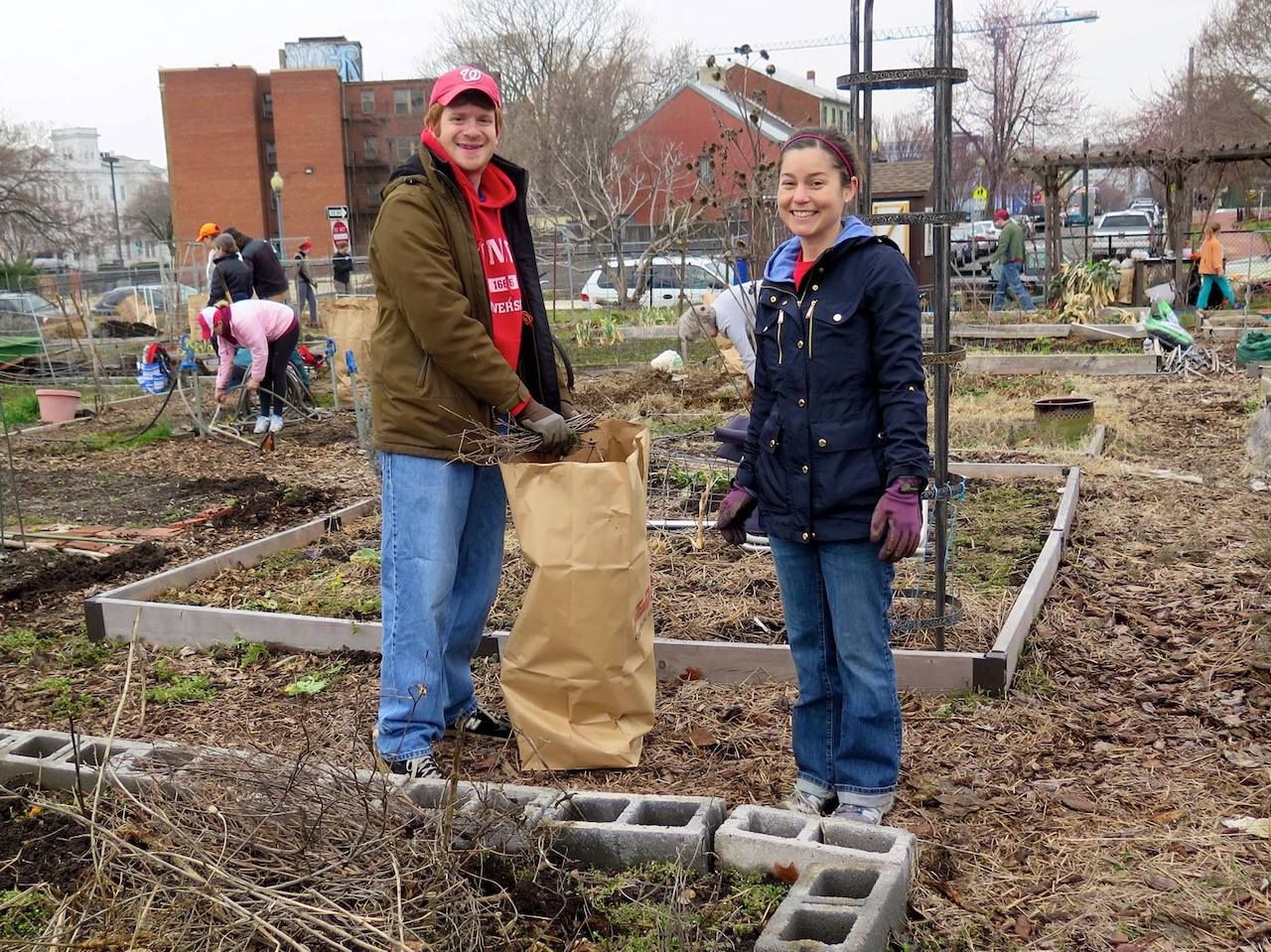
Photo: Sadie Dingfelder/Virginia Avenue Community Garden/Facebook
Washington, DC, plays host to a number of thriving community gardens. In fact, it has some of the most per capita of any city in the country. Among the most impressive is the Virginia Avenue Community Garden, opened in 2004 to service local families. Community gardeners grow everything from organic produce to flowers, operating more than 80 plots. In addition to reaping the benefits of their personal plots, gardeners are expected to help maintain the land at large, which was started from scratch where a neglected swath of land once sat.
Schools, churches, scouts, and other groups may also rent plots. Additionally, the Virginia Avenue garden supports the community by donating extra produce and raising funds for organizations like So Others Might Eat. Members also planted more than a dozen cherry, apple, and plum trees by the fence around the perimeter, allowing passersby to share in enjoying the bounty.